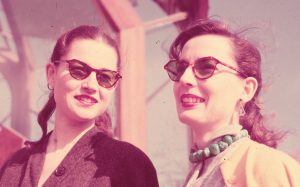It’s zero degrees outside right now, and autumn. Translated for the US, that’s 32 degrees and Fall. This is one of the times of year that confuses our friends in the northern hemisphere. I know this because the number of times a day every single May that I’m told that the weather is warming up is ridiculously high.
Once upon a time only my US and Canadian friends forgot the southern hemisphere had different seasons, but these days it’s parts of Europe as well. December is the worst for this, because we’re told that Christmas is for everyone and requires cold weather to celebrate. A storybook Christmas has cold and snow and a big hot meal. Here, it’s more likely to include a picnic by the lake with black swans demanding their share of the food and with unlimited cold drinks.
Being told to rug up during the summer holidays has a special absurdity, but when it’s negative temperatures overnight (-3.2 last night – I’m typing this at breakfast time feeling that sudden rush of warmth as things become less bitter) every “Isn’t it nice that summer is coming” kinda rankles.
Of all those who forget that the southern hemisphere is not the northern, the most annoying are those who insist that I’m wrong and that winter is not coming. Our autumn is fully settled in late April everywhere, and one in three years is cold by mid-May. This is one of those years. Winter may not be already here, but it’s sent very clear messages that it’s close.
I live in the mountains (inland), so it gets particularly chill here. Canberra is too dry, mostly, for snow (though we had snow in northern Canberra over the weekend) but one of the southern hemisphere’s best ski fields is merely a bit over an hour away. Not that I ski. I did, however once unintentionally provoke the Deputy Prime Minister to fall thirty metres in the snow. That was, however, in summer. The snow was remnant snow and it was the day he gave his particular speech at the top of our tallest mountain and… I put the rest of it into one of my novels, because it’s one of those incidents that sounds fictional and therefore was crying to be used in fiction.
Anyhow, the ski season has begun (just) and I now work late at nights.
Why late? It doesn’t get properly cold until 4 am here, and I would rather go back to bed until my toes don’t curl to protect themselves. This is not typically Australian, and, in fact, didn’t used to be typically Gillian. When I was a child I’d wake up before dawn to walk in the melting frost. As I age, more and more I like going back to bed on days like this.
My work day, in fact, will be shaped around how cold it is over the next three months. And what work does this day entail? Mostly research into how writers develop the worlds for their novels and how these worlds, in turn, can feel more or less real to readers. It doesn’t matter (I am discovering) whether or not the world has magic or if all the plant life is purple with turquoise spots. The world can still feel real when things are not like the worlds we know. It can still feel entirely fake when thing are depicted precisely as we know them. It all comes down to the world building and how the writer pulls that world into the story itself.
My fiction for the next little while depends on my mood. This month’s new writing is all about a light novel where I test some of my discoveries about how writers build and depict worlds. The episode I’m typing when I need a breath of warmth has an almost-human couple discovering that kittens, too, can become vampires. Also that braggarts and fools exist just as much in the world of the supernatural as in the world we know.
This week has a few extras and will be busy. I’m late with my tax, so that’s urgent, and I’m editing, and I’m working on my Patreon papers.
This month’s Patreon essay discusses the very curious relationship between Medieval French epic legends and MCU movies, and I’ll be delivering that paper live at a conference later this week (from my home computer). This month’s fiction for patrons includes the how the kitten’s household semi-domesticates that very cute vampire kitten, and this month’s advice to writers will explain how popular knowledge of famous figures can work in fiction.
And that’s my world this week. It’s busy, but not so busy I can’t sleep for an hour more. Since I started writing this, the temperature outside has gone up by a full degree. Soon the sun will beam loudly into my east-facing work area and everything will be almost-comfortable. I shall take that as a victory, because this year’s winter is going to be cold, if autumn already contains frost and black ice.
When I was younger, I dreamed of a good income. I also dreamed of living somewhere warmer (northern NSW or southern Queensland) in winter and in my more-comfortable mountains in summer. Now that I can’t pretend to be young, I complain about the weather. The reason for the complaint today is not, in fact, because it’s cold outside, but because someone left the security door open over the weekend and all the warmth leeched out of my flat and so the warmest I can get it is fifteen degrees (fifty nine degrees for US readers). Crunchy cold grass underfoot ceases to be exotic when the warmest corner of indoors is under sixteen. And I’m sure there’s a joke in there… but my brain is frozen. Even the postie (who just delivered a parcel) tells me that it’s brisk outside. If you’re reading this from the part of the planet that careens towards summer, this morning I envy you, so very much. How much is so very much? Probably about ten degrees.
 The event was presented by the local chapter of CAIR (Council on American-Islamic Relations), the Muslim Solidarity Group, and the local rapid response team. The idea of becoming a nonviolent ally in directly ameliorating the harm from harassment greatly appealed to me. I found the seminar enlightening, although not always in ways I expected.
The event was presented by the local chapter of CAIR (Council on American-Islamic Relations), the Muslim Solidarity Group, and the local rapid response team. The idea of becoming a nonviolent ally in directly ameliorating the harm from harassment greatly appealed to me. I found the seminar enlightening, although not always in ways I expected.

